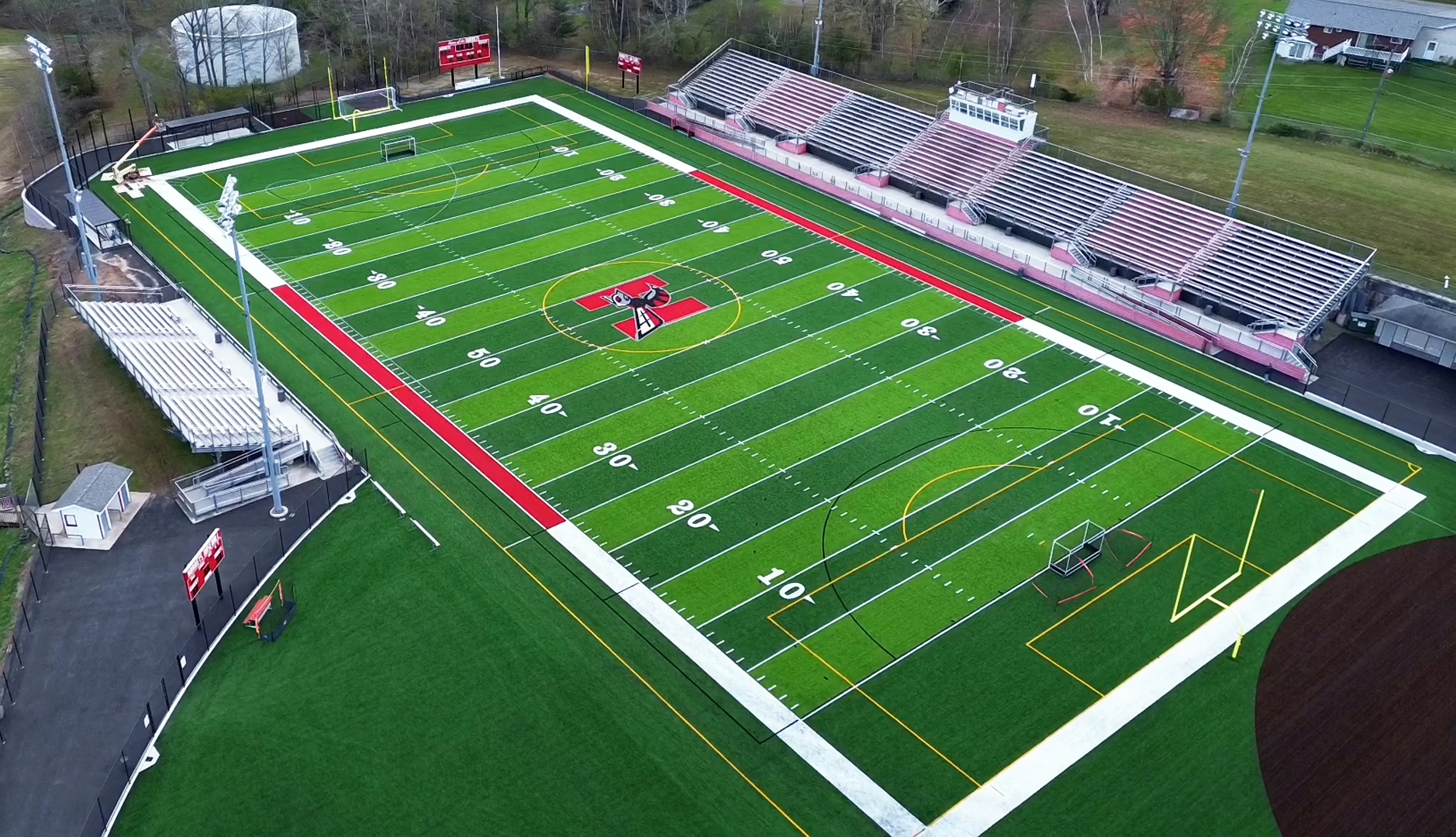Why Artificial Turf is Ideal for Baseball Field Design
Read More

Striking a balance between sustainability and performance is a growing consideration for sports field manufacturers and facility owners alike. Artificial turf is durable, requires low maintenance, and directly benefits player safety and performance. But are these significant performance advantages a risk to environmental sustainability?
Despite the misconception that artificial turf is pure performance without consideration for the planet, you may be surprised to learn that many modern turf systems reduce environmental concerns in several ways. Unlike natural grass, artificial turf does not depend on chemical fertilizers, excessive water use, and constant mowing. Adding to the benefits, many artificial turf systems utilize biodegradable infills and other safer alternatives to offset environmental concerns related to turf waste and production processes. In other words, thanks to advances in turf material science and environmentally-conscious manufacturing, enhanced field performance can now be achieved without compromising sustainability goals.
When evaluating the best choice for field sustainability, both natural grass and synthetic turf have pros and cons related to sustainability. Natural grass does not involve a synthetic production process or require material disposal, but it does require constant mowing, watering, and chemical application – all of which directly contribute to long-term sustainability risks. Alternatively, many artificial turfs and infills are composed of synthetic materials like polyethylene and rubber infill solutions, which require significant energy to produce and can contribute to environmental pollution if these synthetic materials are not properly disposed of.
In an effort to mitigate artificial turf’s environmental impact, both artificial turf maintenance companies and product developers have taken steps to reduce it further. First, engineering stronger turf compositions reduces material degradation, both extending material lifespan and reducing total waste generated. Next, many turf companies are taking an eco-conscious approach to sustainable production. Emerging technologies like natural infill alternatives, recyclable material options, and cleaner grass manufacturing processes dramatically reduce the environmental strain of artificial grass applications.
The result? Artificial turf is emerging as the cleaner alternative in several categories. When evaluating factors such as long-term water consumption, the emissions of constant mowing, and other environmental risk factors related to natural grass use, if durable and eco-friendly artificial turf is utilized, it is actually safer for the environment in the long run.
Hands down, artificial turf in Virginia and beyond wins in the majority of player performance and safety categories. Natural grass is prone to surface inconsistencies and muddy conditions, and it is filled with rocks and roots that can cause trips and severe player injuries. The superior alternative, artificial turf, dries quickly and provides predictable surface traction, and many of the best turf systems offer exceptional shock absorption for optimal joint and impact safety.
The overall ease of surface care further enhances the playability of artificial turf. Instead of closing down the field for constant pothole repair or waiting for the mud to dry, an artificial grass field provides more practice and tournament opportunities. In fact, artificial turf can be used year-round, providing a safe and predictable surface that is easy to maintain.
As important as the impact and injury-prevention benefits, protecting your athletes from chemical fertilizer exposure is another worthwhile consideration when determining which surface type is best for your facility. The result is less toxic runoff, safer player surfaces, and a stylish field that looks great no matter the weather.
Our experts at Keystone Sports Construction exclusively partner with leading turf manufacturers who are committed to sustainable development and application. In your search for an eco-conscious and player-safe alternative, we are happy to teach you more about the best material options, how we meet and exceed environmental safety regulations, and the many ways our field contractors can help you build a stylish, safe, and environmentally-friendly field.